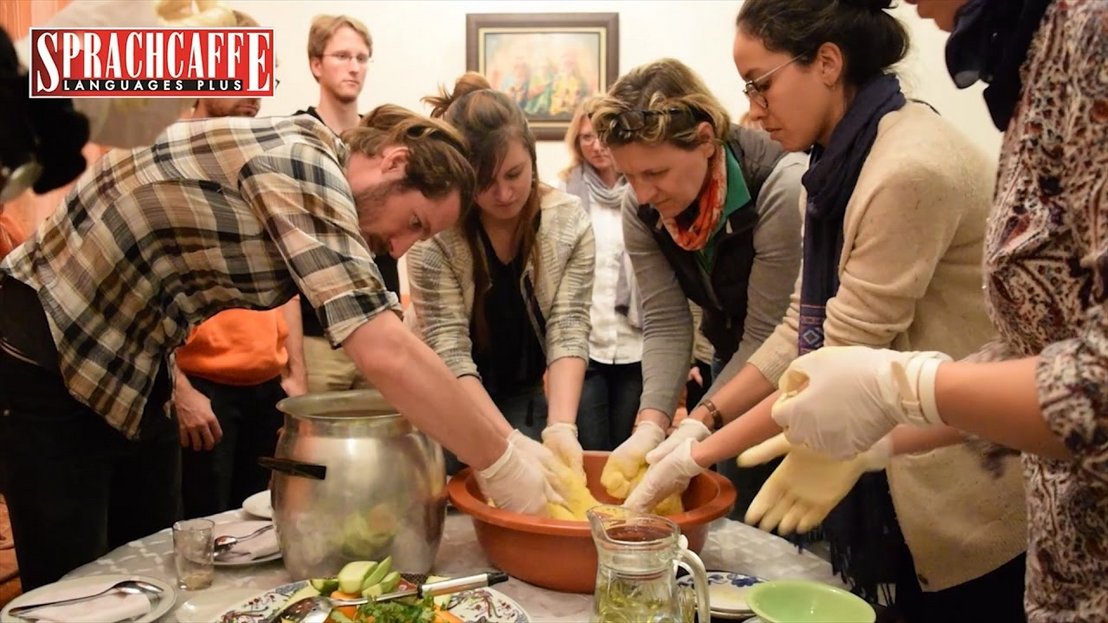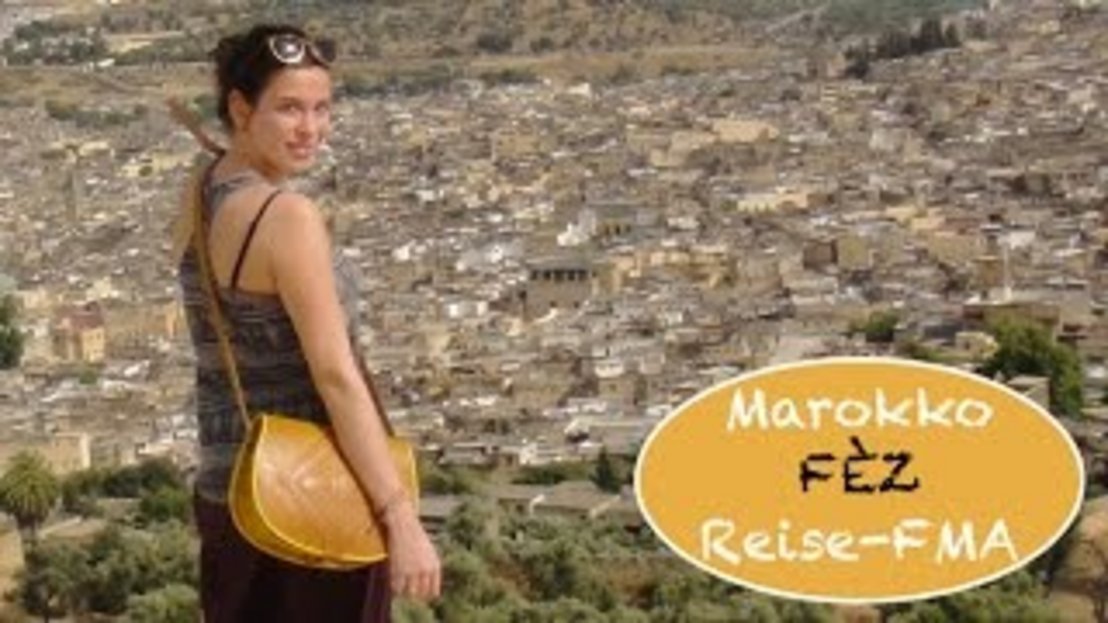Travel guide Morocco
Morocco is known for its diverse desert landscapes, which are among the most beautiful in the world. But the country consists of more than just barren deserts. Morocco's attractiveness lies in its variety, from dinners in the desert to winter sports.
The country's charming landscapes, as well as its rich culture and art, make it a jewel worth exploring. Much of Morocco's culture is embodied in its famous markets, known as the souk (suq). These markets around Marrakech, Rabat and Fez offer not only a vast selection of art, but also a variety of culinary delights, such as its world-known spices.
Morocco attracts tourists from all over the world thanks to its fairy-tale landscape. This is especially true in the historic cities of Casablanca, Fés or Marrakech, where marvellous sights like the Medersa (Koran school) are waiting for you. But don't forget to visit Agadir, Tangier, and Meknès - some of Morocco lesser known yet equally impressive destinations.
The country's charming landscapes, as well as its rich culture and art, make it a jewel worth exploring. Much of Morocco's culture is embodied in its famous markets, known as the souk (suq). These markets around Marrakech, Rabat and Fez offer not only a vast selection of art, but also a variety of culinary delights, such as its world-known spices.
Morocco attracts tourists from all over the world thanks to its fairy-tale landscape. This is especially true in the historic cities of Casablanca, Fés or Marrakech, where marvellous sights like the Medersa (Koran school) are waiting for you. But don't forget to visit Agadir, Tangier, and Meknès - some of Morocco lesser known yet equally impressive destinations.
General informations about Morocco
Geography
Time zone
Climate and season
Tthe best time to travel to Morocco also depends on where in the country you are flying to. For the interior parts of the country, where temperatures fluctuate between 29 and 45 degrees in the summer, the months of March to May or October to November are the best time to be there. Visits to the northwest area are better done between April to November.
Climate chart (Rabat)
| January | February | March | April | May | June | July | August | September | October | November | December | |
|---|---|---|---|---|---|---|---|---|---|---|---|---|
|
|
18° | 18° | 19° | 20° | 22° | 24° | 27° | 27° | 26° | 23° | 21° | 20° |
|
|
7° | 8° | 8° | 10° | 13° | 15° | 18° | 18° | 17° | 14° | 11° | 9° |
|
|
6h | 7h | 8h | 9h | 9h | 10h | 10h | 10h | 9h | 8h | 6h | 6h |
|
|
16° | 16° | 16° | 17° | 19° | 19° | 21° | 22° | 21° | 21° | 19° | 17° |
|
|
6 | 7 | 7 | 6 | 2 | 1 | 0 | 0 | 1 | 6 | 6 | 7 |
Preparing your journey
Requirements for entering Morocco
It is recommended to be presentable when entering the country, because unkempt-looking people can be denied entry. Please note that some regulations in Morocco are very different from the laws of your country, so we recommend everyone to familiarize themselves with the local laws and refer to the Ministry of Foreign Affairs website for specific information.
Currency
Health care
No special mandatory vaccinations are required. Standard vaccinations such as tetanus, diphtheria, polio and hepatitis A are generally recommended. In regards to medical care, larger cities tend to have sufficient clinics and well-trained doctors. However, it might be more challenging to access a higher standard of medical care in rural areas due to poor hygiene and insufficient equipment. You can find further medical advice and up-to-date safety information on the Minestry of Foreign Affairs.
Packing list
Society and every day life in Morocco
Religion
Politics
Local language and communication
It is customary for friends of the same sex or family to kiss each other twice on the cheek as a greeting and goodbye. Men and women only shake hands. However, the right hand can also be brought to the mouth or to the heart to express respect and cordiality.
Public transport
Alternatively, there is also the option of the bus. Morocco has a well-developed bus network, with direct connections between almost all major cities.
Culture and History Morocco
History
The fortress in Rabat, as well as its sister fortress Kasbah Oudaias, are fantastic relics of Rabat's heyday. Rabat became the capital of Morocco in 1921, and has since then transformed into the modern and dynamic city it is today. Despite its long past, Rabat is a modern 21st century metropolis - with all the conveniences and pleasures you could wish for.
Because of its past as French colony, French is one of the main languages spoken in the country. In the early 1950s, the first tensions arose between the incumbent Sultan and the French protectorate administration due to growing independence efforts. As a result, the sultan was exiled in 1953 and replaced by his uncle. This was followed by a wave of indignation against foreign rule, which eventually led to the first step toward Moroccan independence. France and Spain could no longer maintain their protectorate power and Sultan Muhammad V was thus able to return in 1955.
In 1956, Morocco gained independence from France. Morocco then occupied Western Sahara from 1975.
For more detailed information about Rabat, please refer to Visit Morocco.
Festivals
Cherry Festival: Every June the town of Sefrou hosts the Cherry Festival. The locals dress up with fancy clothes and decorate the streets with roses. Folk songs are played and nine beautiful girls in traditional dresses to distribute roses and cherries to the people.
Marrakech Folklore Festival: Between March and April, the Folklore Festival takes place in Marrakech. During this festival, folk dance is celebrated as part of the Moroccan tradition. The festival provides a platform for the exchange of traditions, as local groups as well as dancers from European and African countries can participate.
Mawazine Festival Rabat: Rabat hosts the Mawazine Festival, a week-long global music festival in June. The line-up includes artists from all over Africa, as well as Europe, Asia and the rest of the world. For one week, numerous concerts, in all styles and genres, take place.
Jazz au Chellah: On the grounds of the Chellah, Moroccan and European jazz concerts have been held for five days in September since 1996 to promote dialogue between Europe and Morocco. Jazz concerts featuring European and Moroccan artists are also held with increasing frequency outside of the festival.
Oudayas Surf Club: If you feel like surfing, you can join the Oudayas Surf Club. Since 1998, this surf school has attracted avid surfers from all over the world. Surf lessons can be taken here every day except Mondays. A surf lesson costs around 150 DH.
Procession of the Candle: This festival takes place in the town of Salé. Here men carry huge wax lanterns of all shapes and sizes and dance in circles. The town is beautifully decorated and the locals are especially fond of celebrating. This is because it is the time when the candle season begins and is meant to commemorate the birth of Mohammed. The locals even get two days off during this time.
Holidays
May 1 - Celebration of Labor Day or Fête du Travail (French) and Aid a choghl (Arabic)
July 30 - Fête du trône (French)/ Aid el 3àrch (Arabic): On this day Moroccans celebrate the accession to the throne by Mohammed VI.
August 14 marks the return of the Saharan provinces to Morocco. This holiday is also called Allégeance Oued Eddahab or Dikra Istirjaa Oued Eddahab et Sakia el-Hamra.
August 20 - Révolution du roi et du peuple / Thawratou el malik wa chaāb. This day celebrates the rising of the Moroccan people against the banishment of the king by the French.
August 21 - Birthday of King Mohammed VI, a day also called "The Day of Youth" (Fête de la Jeunesse/Aid Achabab).
November 6 - "Green March" (La marche verte/ El massira el khadrae): Event that celebrates the march the Moroccan people organised to strengthen their influence over the Western Saharan territory.
November 18 - Fête de l'indépendance (Arabic: Aid el istiqlal ): celebration of the end of the French protectorate
One should of course not forget the annual fasting month of Ramadan. Ramadan is determined and set every year based on the position of the moon. The fasting month influences the life of the Moroccan people, since opening hours of stores and places of interest change. After the sun goes down people tend to congregate in the street and celebrate as a community, eating and sharing stories.
Food
Everything you need to know about Morocco
Common tourist mistakes
There are rules regarding what you can take back from Morocco. For fossils and semi-precious stones, you will need a special permit. In general, you should refrain from giving gifts of plants or stones out of respect for the local flora and fauna. You may not export more than 10 stones out of the country. You are also not allowed to bring seeds of exotic plants. Allowed are textiles, ceramics or glasswork.
Remember that you are in a Muslim country, so your clothing should be respectful of the local traditions. You should also refrain from kissing or holding hands in public, as it is unusual in Morocco to exchange such intimacies outside of the private space.
Tips and advice
Respect Ramadan and do not eat too substantial meals on the street during the day. Also note that during this period service in hotels or local transport (buses/taxis) can sometimes be a little erratic. It is also harder to get access to alcohol.
When you are invited to someone's house, it is good manners to bring a small gift for the host, and don't forget to always accept tea in a friendly manner.
Before entering living quarters or mosques it is necessary to remove shoes.
Small dictionary
| English | Arabic | Arabic in Arab characters |
|---|---|---|
| Hi! | Salam! | سلام |
| Good Morning! | Sabah el kheer! | صباح الخير |
| Good Day! | Masaa el kheer! | مساء الخير |
| Welcome! | Marhaban! | مرحبا |
| How are you? | Kaifa haloka? (m)/ Kaifa haloki? (w) | كيف حالك؟ |
| Good, thanks! | Ana bekhair, shokran! | أنا بخير شكرا |
| And you? | Wa ant? (m)/ Wa anti? (w) | و أنت؟ |
| Thank you very much! | Shokran (jazeelan)! | شكرا (جزيلا) |
| You're welcome! | Al’afw! | ألعفو |
| Good evening! | Tosbeho 'ala khair! (m)/ tosbeheena 'ala khair! (w) | تصبح/ تصبحين على خير |
| See you later! | Araka fi ma ba'd! (m)/ Araki fi ma ba'd! (w) | أراك في مابعد |
| Goodbye! | Ma’a salama! | مع السلامة |
| I've got lost | Ada'tu tareeqi! | أضعت طريقي! |
| Can I help you? | Hal beemkani mosa’adatuk? | هل بإمكاني مساعدتك؟ |
| Can you help me? | Hal beemkanek mosa’adati? | هل بإمكانك مساعدتي؟ |
| Where is the toilett/pharmacy? | Ayna ajedu al merhaad/ assaidaliah? | أين أجد (المرحاض/ الصيدلية)؟ |
| Do you speak (English/ Arabic)? | Hal tatakallamu alloghah alenjleziah/ alarabiah? | هل تتكلم اللغة الإنجليزية /العربية؟ |
| My name is … | Esmee… | إسمي.... |
Videos
A picture is worth a thousand words, so why not take a look at the video below and fully take in all the gorgeous landscapes and rich culture of the Kingdom of Morocco?








